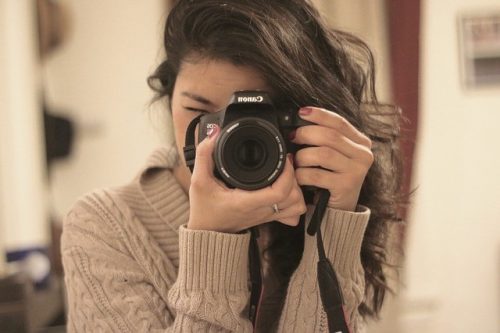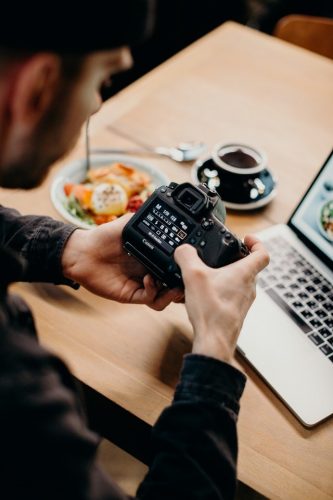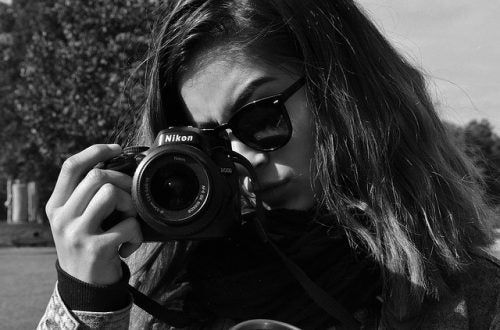
Get a Camera
This might seem obvious, but you really can't learn how to become a photographer without a camera. Does it have to be the newest, greatest, most expensive thing out there? Absolutely not! Especially when you’re starting out, the most important thing is that you have a camera.
Skip the Stops to Start
When you’re getting started in photography, measuring the stops of light and memorizing the f-stop scale can be difficult. More important is learning how the exposure triangle- aperture, shutter speed, sensitivity- relates, and how to balance and approach exposure creatively. Don't get too worried about counting stops and perfectly balancing light when getting started in photography. There's so much more that's more important to learn, like how to pose people, how to see good lighting, or how to find photographic moments.
Move to Manual for More Control
The sooner you begin to truly control your exposure, the sooner you'll become more than a camera button pusher. Venturing outside of the automatic exposure mode is the single largest step you'll take to transition from camera button pusher to artist. You can learn to handle backlighting, creative exposure, and many more scenarios than the camera can handle on its own. First, understand ISO and the impact on image quality as well as the light reaching the sensor. Then, branch out to controlling shutter speed and aperture and considering the visual outcomes of those settings as well. Jumping into shutter priority or aperture priority is a decent training step toward getting to full manual exposure modes when learning how to become a photographer.

Prioritize Lenses
One key to avoiding spending too much money on photography gear is to buy smart and get the purchase right the first time. As long as you restrict yourself to the inexpensive kits lens that comes with the camera, you're going to limit your work. Although it's totally possible to make great photos with the kit lens, it has its limitations. Its slow aperture limits you to well-lit environments. When upgrading the lenses of your camera, it's more important to make the right upgrade by choosing faster lenses that give you great value in terms of photographic output when you start photography.
Get a Fast Fifty Now
If your current camera is an interchangeable lens type, you can’t get a better second lens than the 50mm. With its fast aperture, typically f/2, f/1.8, f/1.4, it can help you tackle low light situations and also help you to control depth of field in a way that the kit lens never can. The greatest creative control is this ability to control depth of field. Wide aperture lenses from Beachcamera.com allow you to limit the sharp portion of the photo to a small portion that lets you isolate a focal point when you’re getting started in photography.
Learn Your Camera Inside and Out
One way to learn how to become a photographer is to understand the tools at your disposal. When you don't have to think about the buttons to push and the technical choices to make, you're free to approach photography as a creative. You're thinking in terms of light, and not spinning the dials that control aperture. When you really learn every option, every setting, every control of your camera, your camera becomes an extension of your eye. Spending some quality reading time with the camera's manual is one way to get acquainted. An even better way is to shoot with your Nikon camera from Beachcamera.com every day.

Don't pressure yourself by worrying how to become a professional photographer right away. Just like everything worthwhile in life, getting started in photography takes practice.








































